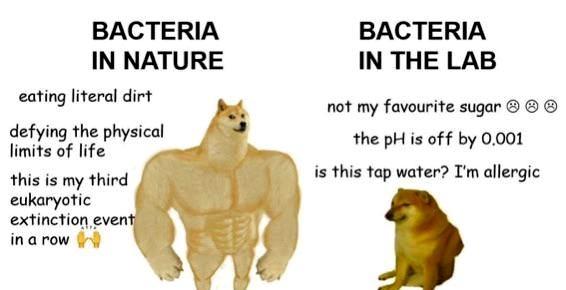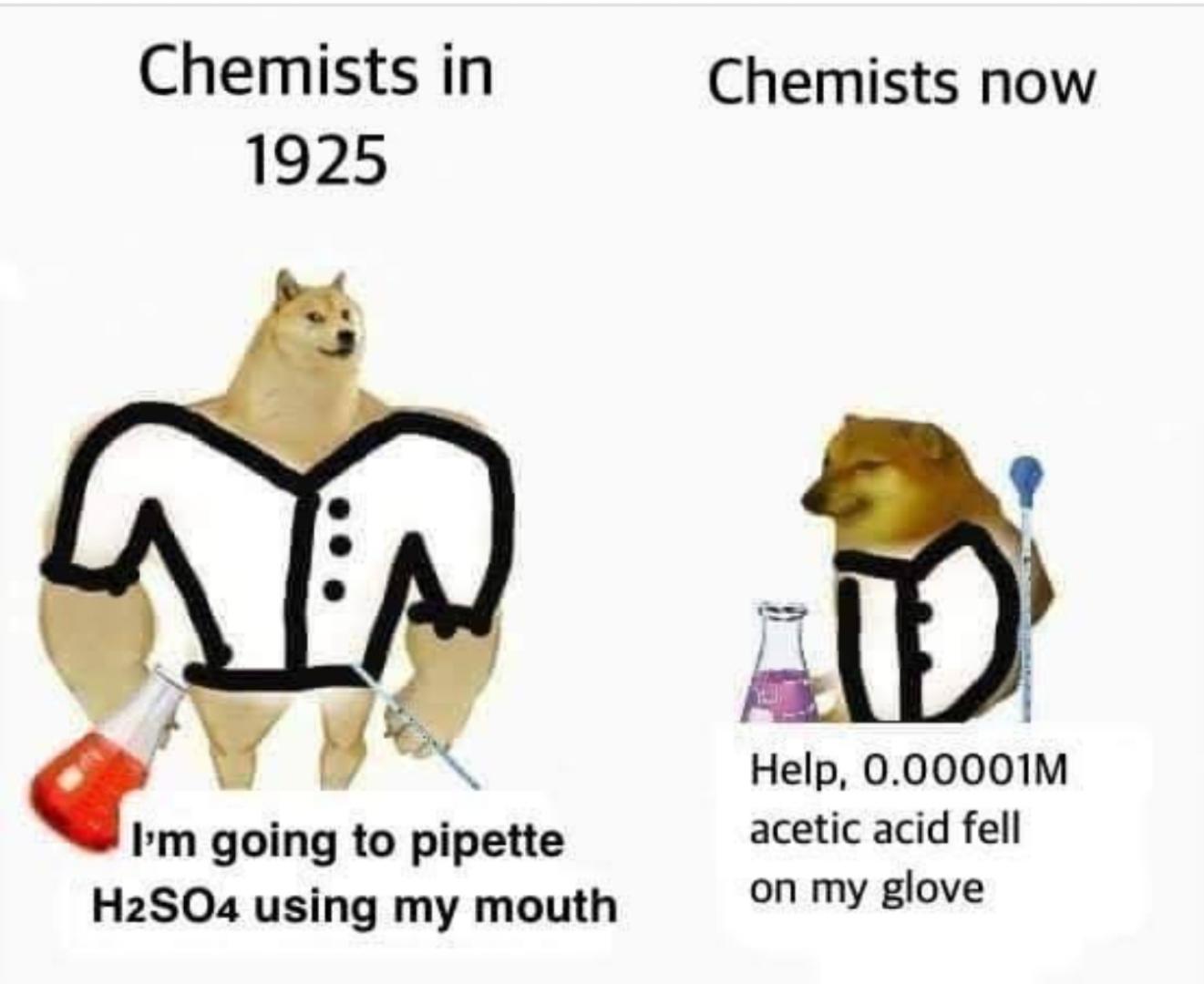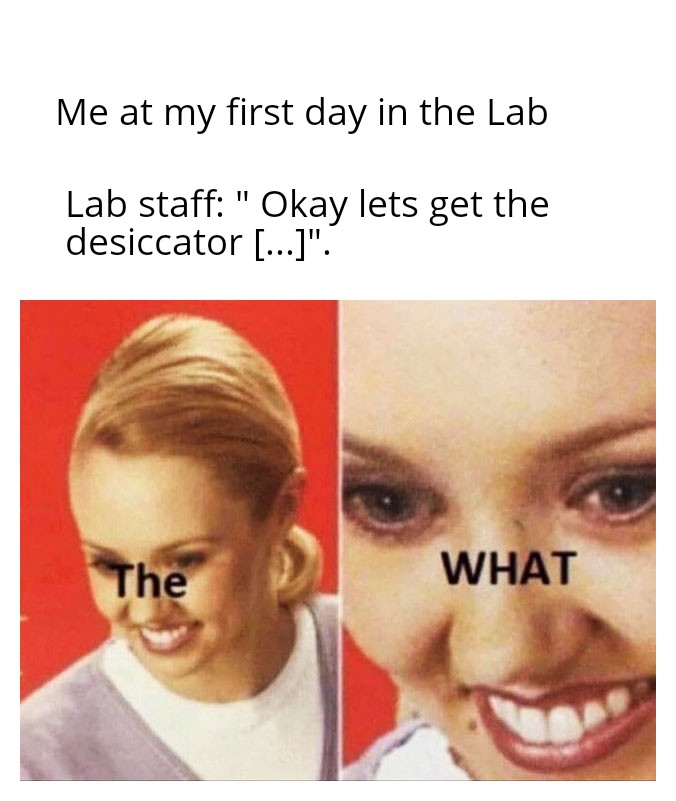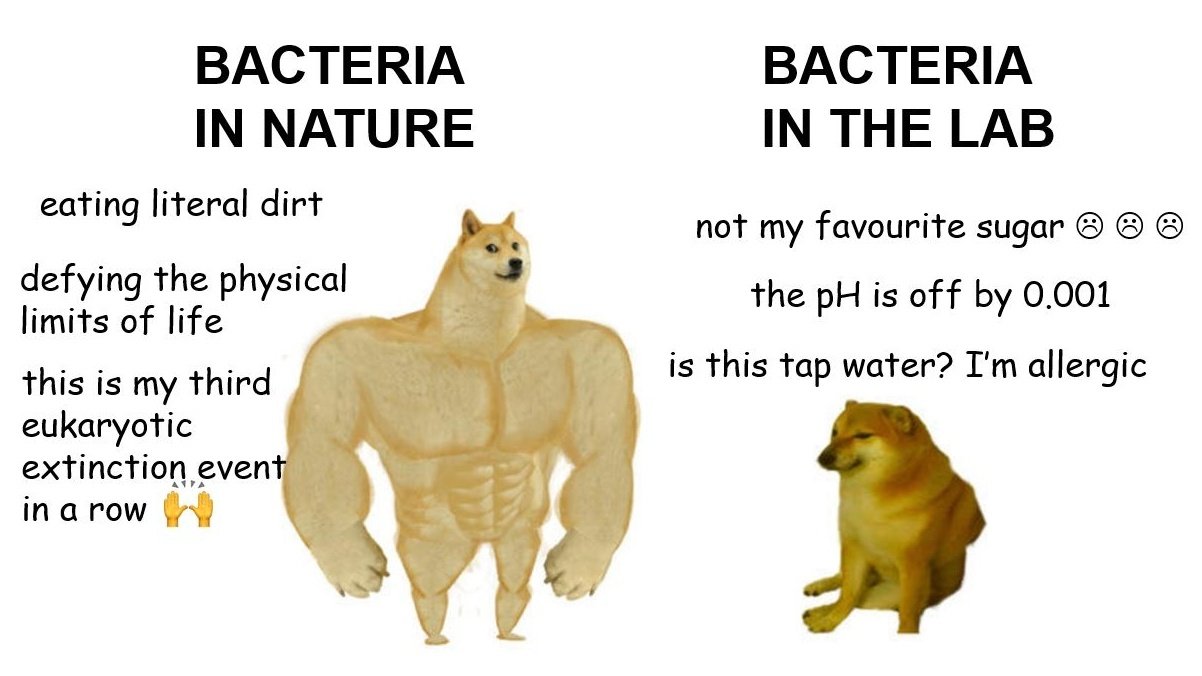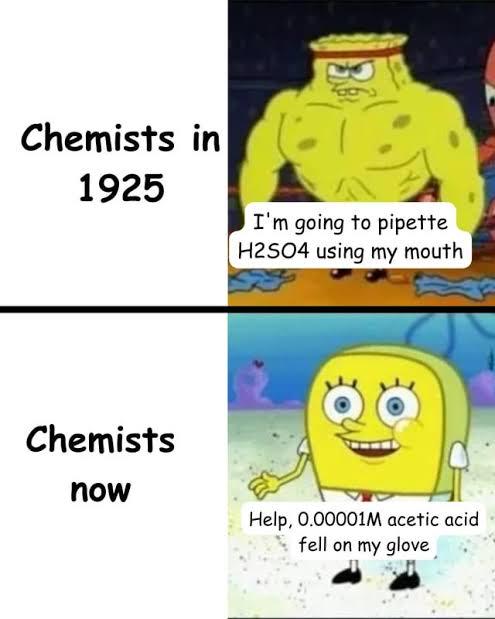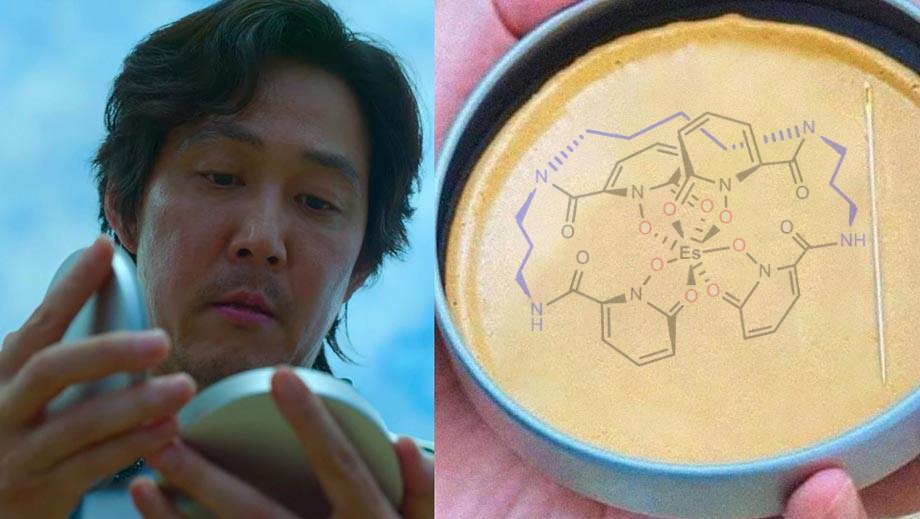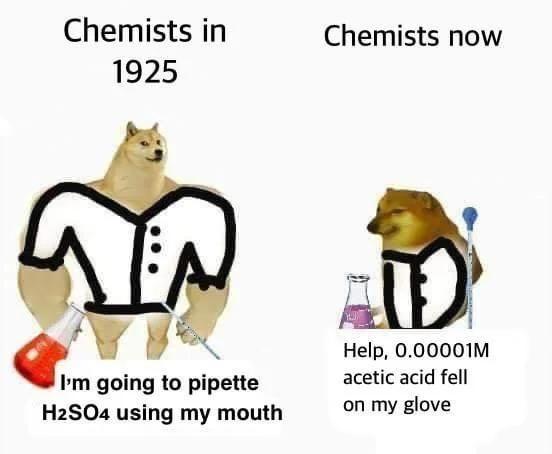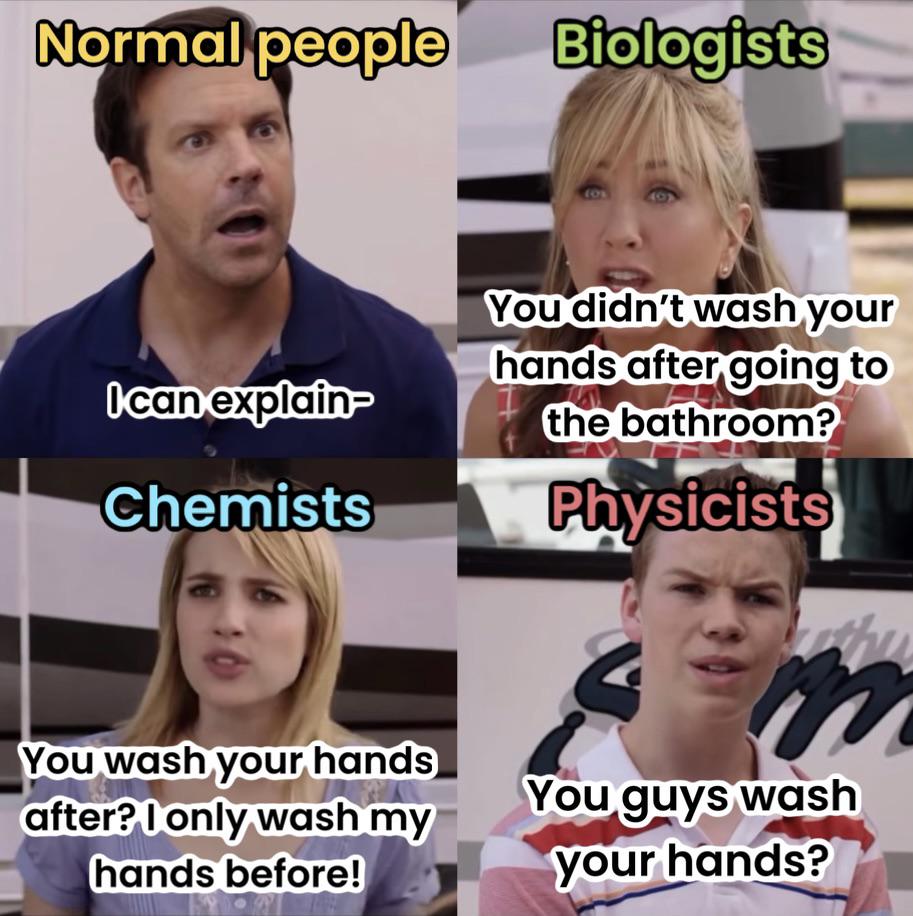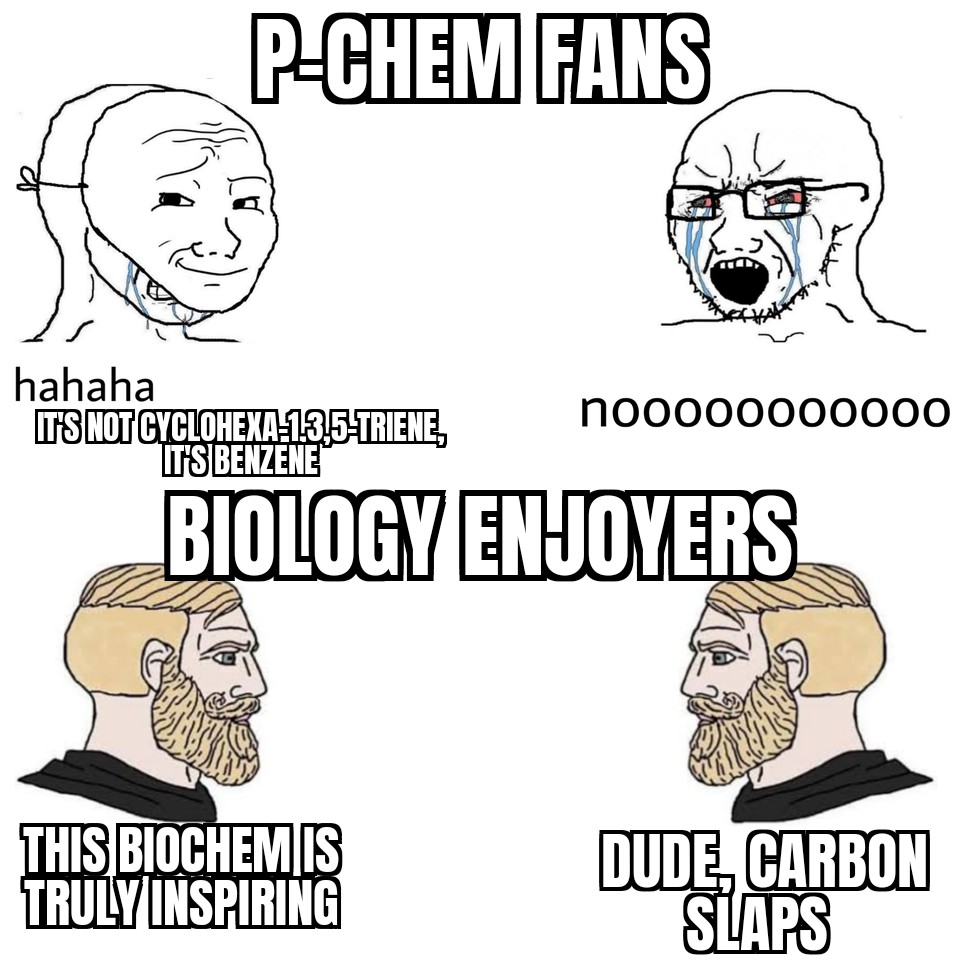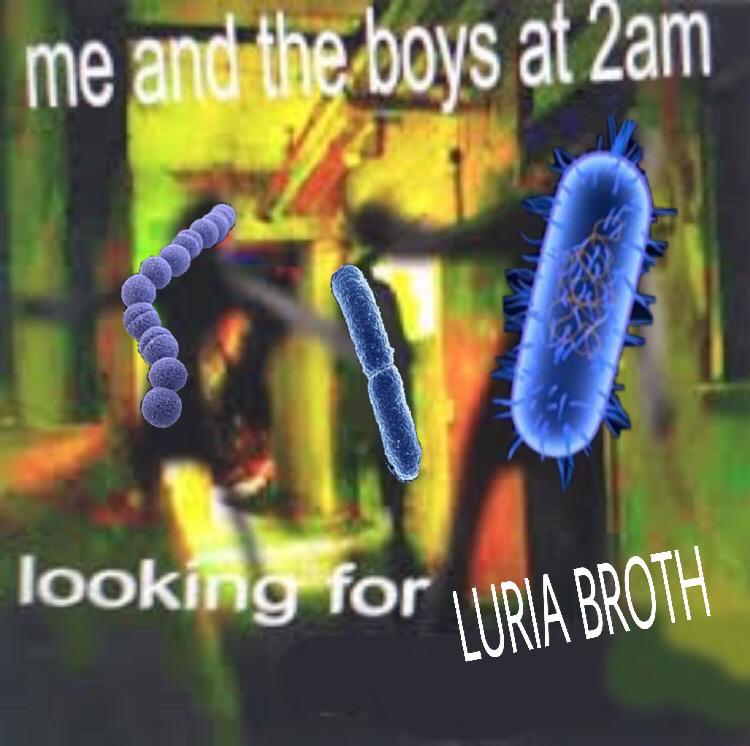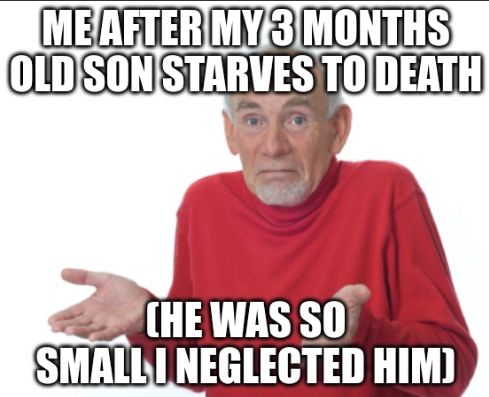The microbiologists' version of a late-night food run! Those bacteria are literally on a mission to find their favorite growth medium. Luria broth (or LB medium) is basically the five-star restaurant buffet for bacteria - packed with peptides, vitamins, and minerals that make microbes multiply faster than college students at a free pizza event. The streptococci chain (left), bacillus rod (middle), and that spiky E. coli (right) aren't just hanging out - they're the microbial equivalent of friends raiding the fridge at 2am after studying all night. Only instead of leftover pizza, they're hunting for peptone and yeast extract. The dedication is real - even single-celled organisms get those midnight munchies!


 Academia
Academia
 Ai
Ai
 Astronomy
Astronomy
 Biology
Biology
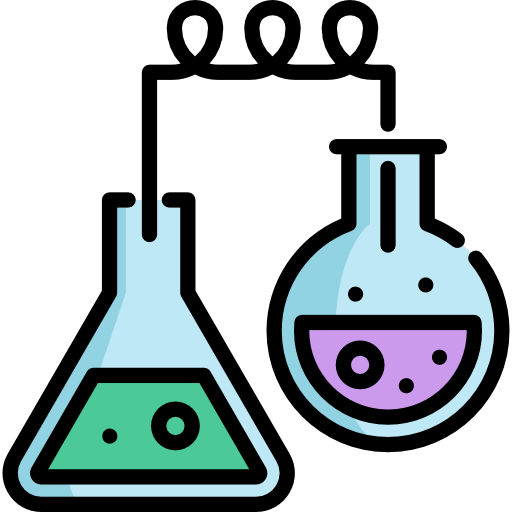 Chemistry
Chemistry
 Climate
Climate
 Conspiracy
Conspiracy
 Earth-science
Earth-science
 Engineering
Engineering
 Evolution
Evolution
 Geology
Geology
